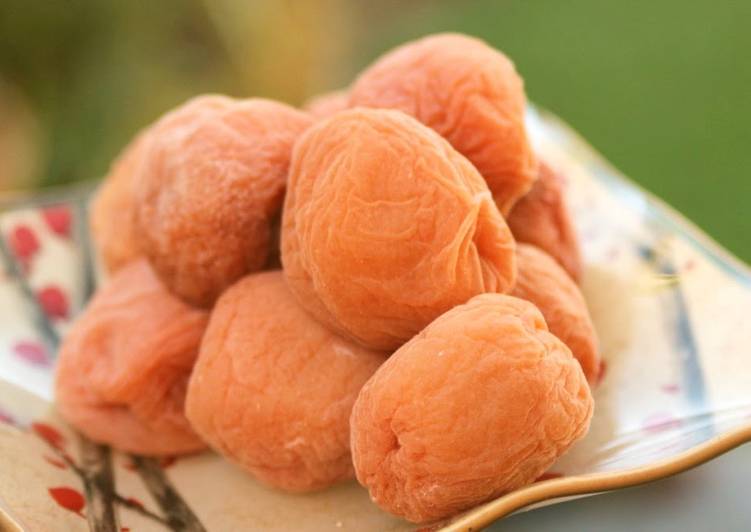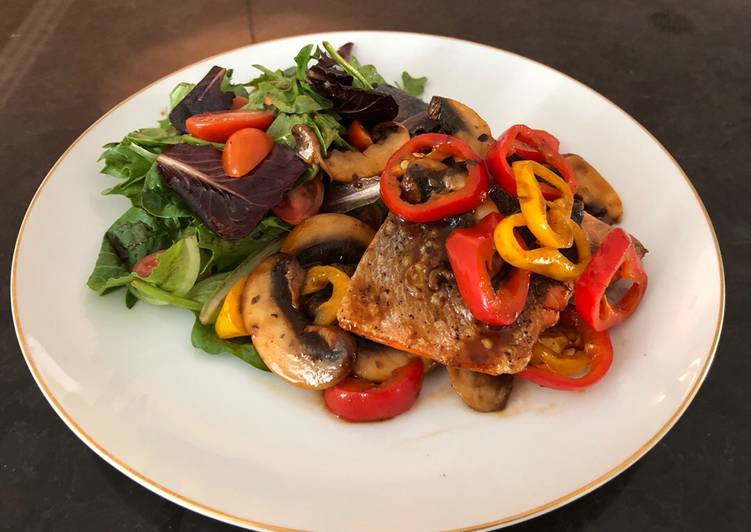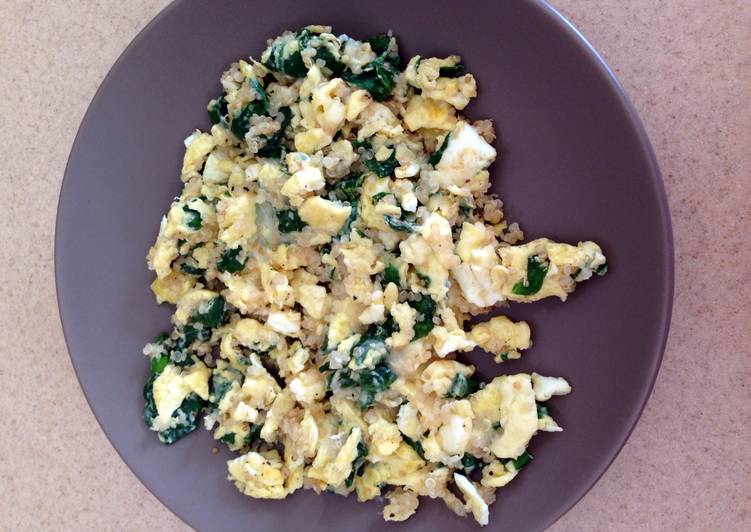
Hey everyone, it is me, Dave, welcome to our recipe page. Today, we’re going to make a distinctive dish, even abroad! not umeboshi pickled plum, but pickled apricot. One of my favorites. For mine, I’m gonna make it a bit unique. This will be really delicious.
Even Abroad! Not Umeboshi Pickled Plum, but Pickled Apricot is one of the most favored of current trending meals on earth. It is appreciated by millions every day. It’s easy, it’s fast, it tastes yummy. They’re nice and they look wonderful. Even Abroad! Not Umeboshi Pickled Plum, but Pickled Apricot is something which I’ve loved my entire life.
Mix the salt and citric acid. Carefully wash the apricots and dry well with a paper towel. Remove the stem with a toothpick.
To begin with this particular recipe, we have to first prepare a few components. You can cook even abroad! not umeboshi pickled plum, but pickled apricot using 4 ingredients and 11 steps. Here is how you cook that.
The ingredients needed to make Even Abroad! Not Umeboshi Pickled Plum, but Pickled Apricot:
- Prepare Apricots
- Prepare Salt (18% of the apricots)
- Get Citric Acid (3% of the apricots)
- Take Vodka
Initially, the preserved plums are actually yellow, not the familiar red you typically see Umeboshi. Not Umeboshi Pickled Plum, but Pickled Apricot Recipe by cookpad.japan. Not Umeboshi Pickled Plum, but Pickled Apricot. Japanese ingredients are hard to find when living overseas.
Instructions to make Even Abroad! Not Umeboshi Pickled Plum, but Pickled Apricot:
- Mix the salt and citric acid
- Carefully wash the apricots and dry well with a paper towel. Remove the stem with a toothpick.
- Wipe the apricots from Step 2 with a vodka-soaked paper towel. (This is to prevent mold from forming)
- Add Steps 1 and 3 alternatively to a sterilized bottle. (Sterilize the bottle by boiling and wiping with vodka.) Store as-is for a month in your pantry.
- During storage water will form so shake the bottle about one a day to spread the liquid. The picture shows two days after making. The volume has decreased.
- When they are well-pickled, put them outside to dry them out. On the first day they will be prone to sticking to the net so turn them over soon.
- If you put the pickled apricots back into Step 5's bottle on the first evening after leaving them out, they will become soft, but if they have already softened you don't have to worry. You can take them inside.
- They will be done on the 2nd or 3rd day of drying out. Try not to get them wet with rain or other moisture. The picture of the basket in Step 6 or 9's bottle is fine. The salt will spread gradually.
- I promptly used some in an onigiri rice ball. The color was slightly yellow but the flavor was like a tart, salty umeboshi pickled plum. They turned out well and mold-free.
- If you have red shiso, prime them by rubbing with salt to remove bitterness and add them to Step 5 when the liquid starts to form. The shiso-addition gave me a good result.
Even if they are available they are usually expensive or not from Japan etc. Umeboshi are actually a pickled delicacy made from a fruit called 'ume'. The fruit is something like a cross between an apricot and a plum. The bulk of the calories in pickled plums come from carbohydrates. Carbs have had a bad rap of late because of their link with weight gain but they should. ツ"Hai umeboshi kudasai, yes, pickled plums please,ツ" I said in return while making a circular motion with my hand around the table indicating that I wanted one for all of us.
So that’s going to wrap this up for this special food even abroad! not umeboshi pickled plum, but pickled apricot recipe. Thanks so much for your time. I’m confident you will make this at home. There is gonna be more interesting food at home recipes coming up. Don’t forget to bookmark this page on your browser, and share it to your family, friends and colleague. Thank you for reading. Go on get cooking!

